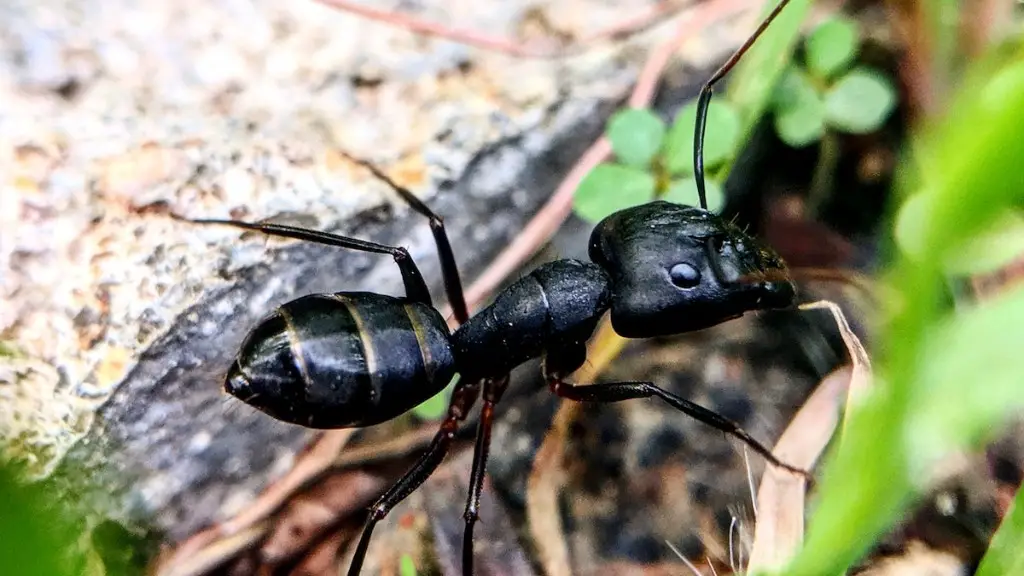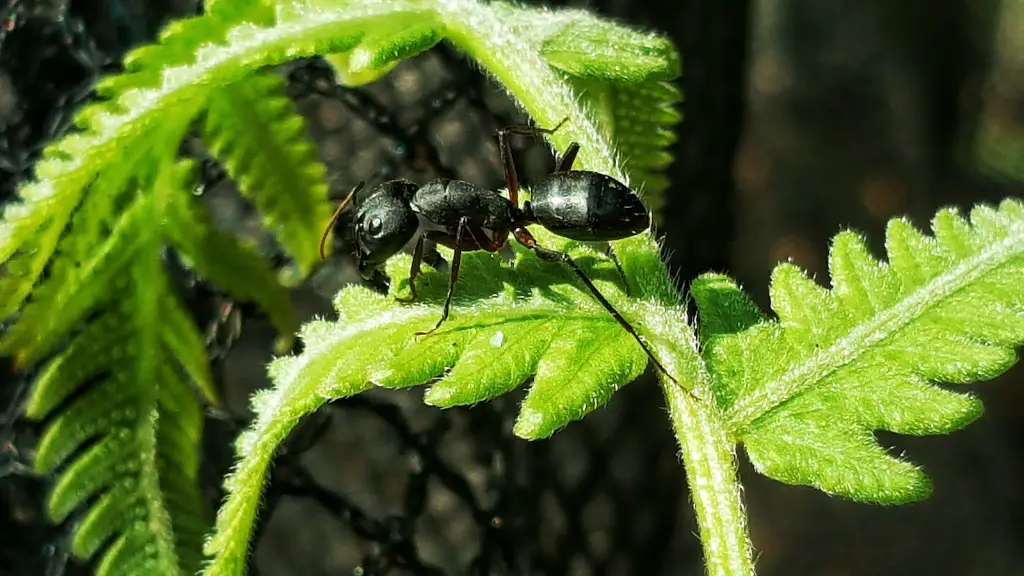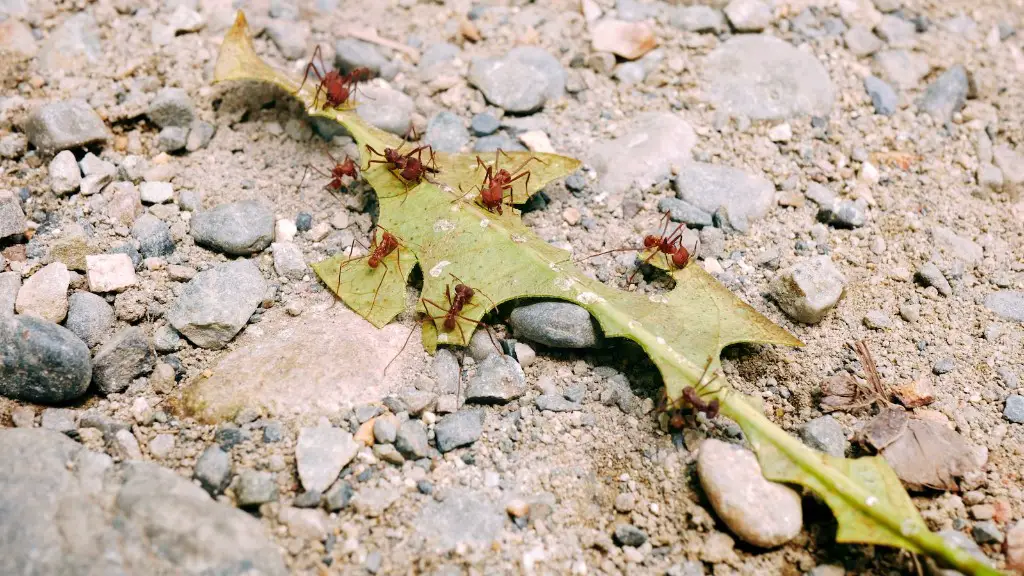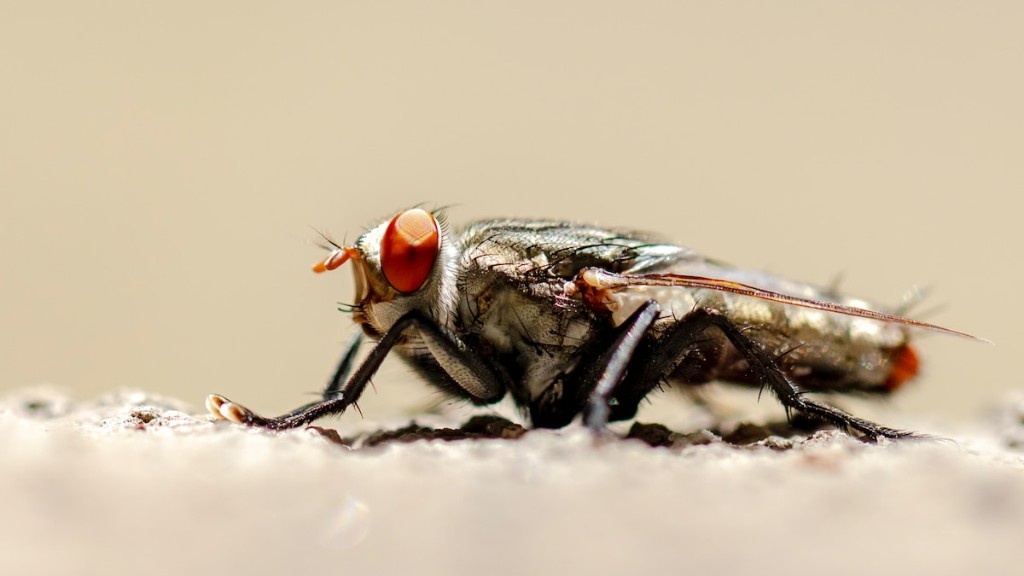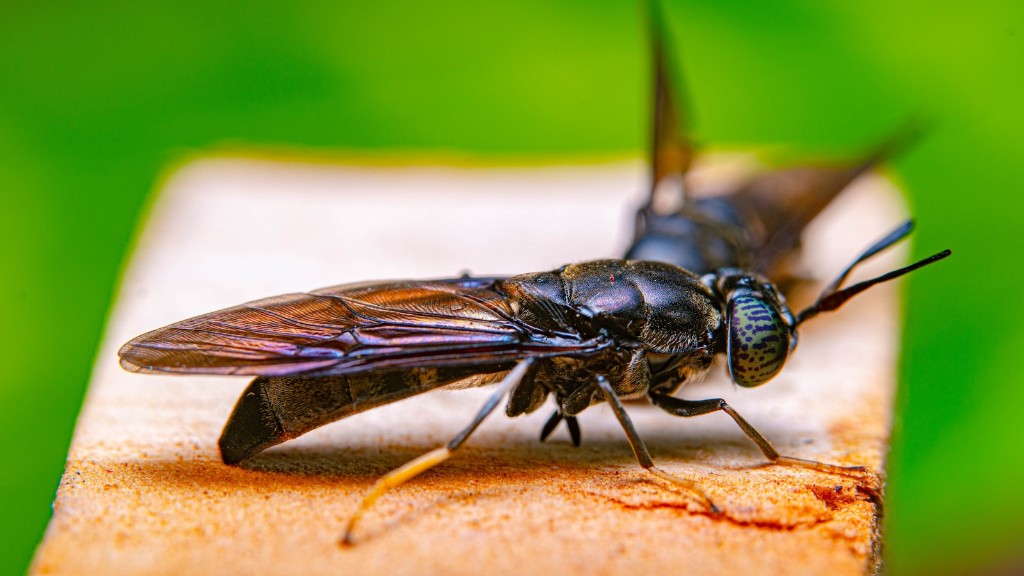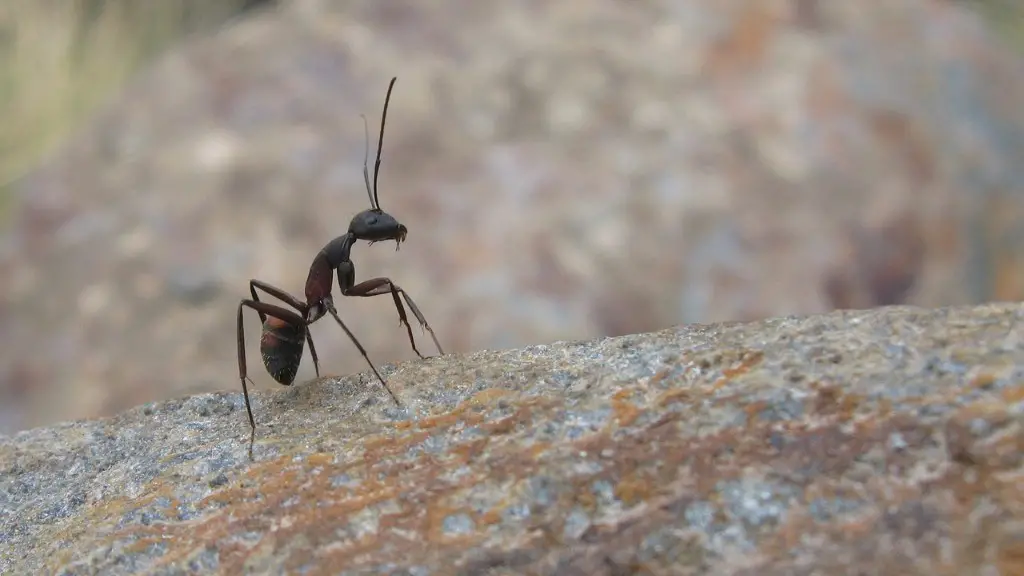Gardening can be a great hobby and it’s something that many people enjoy doing. But, one of the drawbacks of gardening can be the presence of ants. These pesky insects can quickly ruin your garden and make it look unattractive. It’s important to take steps to prevent ants from entering and nesting in your garden.
One of the best ways to prevent ants from entering your garden is to make sure that there are no food sources available for them. As these ants are usually searching for food, they will be less likely to enter the garden if there is none present. Ensure to regularly clean up any fallen fruit or vegetables from the plants. Additionally, don’t leave any pet food out where it’s easily accessible to the ants.
To further prevent ants from entering your garden, plant insect repellents plants such as mint, lavender, and marigolds. These plants have natural chemicals which will act as a repellent to the ants. Mint and lavender plants have strong odors so planting them around the garden will deter the ants from entering. Marigolds release a chemical called limonene which has an unpleasant smell which the ants don’t like.
You could also create a physical barrier around the border of the garden to prevent the ants from entering. This barrier can be made from a variety of different materials such as wood, metal or even plastic. This barrier should be at least a few inches tall and should be made completely closed with no gaps or openings for the ants to slip through. As an added precaution, you could put pesticide or insect repellent in areas where the barrier isn’t as effective.
If the ants are already present in your garden, then you may want to turn to chemical pesticides. These should be used sparingly and only when absolutely necessary, as these can be harmful to other insects as well. However, if the ants are invading your garden in large numbers, then this may be a necessary step in order to get rid of them quickly. In this case, it’s best to use an insecticide that is specifically designed for ants.
Finally, a crucial part of preventing ants from entering your garden is to avoid attracting them. This means keeping the garden clean, free of debris and rotting plants. Additionally, make sure to keep the soil moist, but not too wet, as the ants like damp environments. If kept dry, the ants will have less reason to enter your garden.
Making Your Garden Less Inviting to Ants
Making your garden less inviting to ants is an important step in keeping them away and stopping them from entering. Remove anything that was left behind from previous plants which could be attracting ants, such as twigs, leaves, and rotten fruit. Additionally, check the soil for proper drainage and make sure that it is not too wet or too dry.
Keep the garden clean, picking up any debris or food sources that could be attractive to the ants. You may also want to spread some dry soil or sand over the area to make it less inviting. Rough and scratchy surfaces can deter the ants from entering, and can make the garden less attractive.
When it comes to plants, it’s best to choose ones that are more resistant to ants. Plants such as petunias and begonias can be good choices as they have a strong aroma that ants do not like. Certain herbs, such as basil and thyme, are also a good option as they can deter ants from entering. Additionally, make sure to regularly trim back any overgrown plants, as the ants could be using them for shelter.
Finally, it’s important to monitor the ant activity in your garden. Regularly check for any nests or trails and take steps to eliminate them as soon as possible. By taking the necessary steps to prevent ants from entering your garden and to reduce their activity, you can save yourself a lot of trouble.
Setting up Ant Traps
If you find that the ants have already made their way into your garden, then it may be necessary to set up some type of ant trap. There are a variety of traps available on the market, so it’s important to choose one that is appropriate for the type of ants that have infested the garden. Common ant traps include borax bait, which is a white powder made of Borax and sugar that attracts and kills ants.
There are also liquid ant baits which use different active ingredients to attract and kill ants. It’s important to read the label carefully to make sure that the bait you choose is appropriate for the type of ants that you have in your garden. Additionally, make sure to monitor the trap and refresh the bait regularly, as it can become ineffective over time.
It may also be beneficial to use some type of physical barrier to keep the ants away from your plants. This could be in the form of a wire mesh that you can place around the plants or even a sheet of plastic that can be placed between the grass and the soil. This will provide a barrier between the ants and the plants and will prevent them from entering.
If you find that the physical barriers are not effective, then you may want to look into using some type of insect repellent spray. These sprays can be applied to the leaves and stems of the plants to effectively repel the ants. Be sure to read the label carefully to make sure that the repellent you choose is appropriate for the type of ants in your garden.
Keeping Everything in Balance
In order to keep your garden ant-free, it’s important to remember that it’s all about balance. You don’t want to eliminate all of the ants, as this can disrupt the natural balance of the ecosystem. However, you don’t want them to become too populous either, as this can be detrimental to the health of the plants and the garden overall.
It’s important to monitor the ant activity in your garden and to take any steps that may be necessary to reduce the number of ants. Taking preventive measures, such as eliminating food sources and setting up physical barriers, can go a long way to keeping the ants out of your garden. Additionally, setting up ant traps and using chemical repellents, when necessary, can help to reduce the ant population.
Finally, remember to keep an eye on the soil and be sure to keep it moist but not soggy. Making your garden less inviting to ants is the key to keeping them away and maintaining a healthy ecosystem.
Dealing with Serious Infestations
If you find that you are dealing with a serious ant infestation, then you may want to look into hiring a professional exterminator. This is usually the best option for dealing with large numbers of ants and can help to quickly and effectively eliminate the problem. The exterminator can also provide advice as to how to keep the ants out of the garden in the future.
You may also want to look into using some type of insecticide that is specifically designed for killing ants. These should be used sparingly, however, as they can be harmful to other insects and animals. Additionally, it’s important to read the label carefully and follow the instructions so that the insecticide is used correctly and safely.
When it comes to dealing with serious ant infestations, it’s important to act quickly and take the necessary steps to eliminate the problem. By taking the proper precautions and using the appropriate methods, you can ensure that your garden remains ant-free.
Being Proactive and Keeping Ants Away
The best way to keep ants away from your garden is to be proactive. Take steps to prevent them from entering in the first place by eliminating food sources, setting up physical barriers, and planting insect repellent plants. Additionally, monitor the soil and make sure that it is not too wet or dry, as this can attract the ants.
If you do find ants in your garden, then it’s important to act quickly and take steps to eliminate them. Set up ant traps, use chemical repellents, and, if necessary, hire a professional exterminator. Taking preventive measures will go a long way in keeping your garden ant-free.
Finally, remember to keep an eye on the ant activity in your garden and be sure to take any necessary steps to reduce their numbers. By taking the precautionary steps necessary to keep your garden ant-free, you can ensure that your gardening projects will remain enjoyable and successful.
